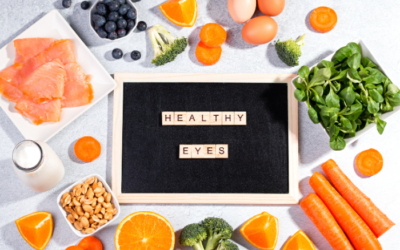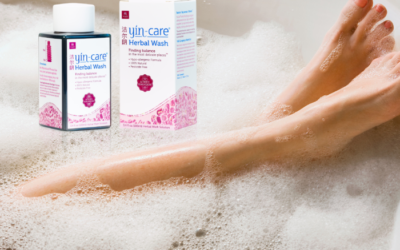Collagen for Gut Health
The gut, in medical terms, refers to your gastrointestinal system, or your digestive tract, and includes such organs as the intestines, the colon, stomach, esophagus, gallbladder, liver, pancreas and rectum. Basically, there is a lot going on in the gut, and it is one that you want to keep happy and healthy.
Even Hippocrates, the father of modern medicine, once proclaimed, “All disease begins in the gut.”
Sometimes, however, your gut is telling you something—that it is on overload, or is in distress. No doubt everyone has experienced acute symptoms such as an upset stomach, bloating or gas, though somewhat more serious gut problems can manifest in other, more subtle ways and contribute to other systems being off-kilter.
Leaky Gut Syndrome
Today’s researchers know that your gut health is connected to other aspects of your immune system.
The digestive system is where food is broken down and nutrients are absorbed into your body. Like an embarrassing uncle who overstays his welcome, unwanted bacteria is waiting in the wings. The intestinal walls of a healthy digestive system act as a protective shield by fighting off those pesky infiltrators, like toxins and other harmful substances, while allowing healthy substances free reign to roam around your body and provide the nutrients you need.
Therefore, good digestion often equates to good health.
That’s why having a leaky gut (also called “increased intestinal permeability”) is not an ideal situation. Having holes or cracks in the gut lining allows toxins to get beneath the surface and into the tissues, which could trigger inflammation. The end goal of having a leaky gut is to ‘heal and seal’ the gut lining. Not only does it cause problems in the digestive tract, but the leaky gut is also associated with autoimmune disease. However, you don’t have to have an autoimmune disease to have a leaky gut syndrome.
Some practitioners believe that the primary contributors to leaky gut are the foods that we consume, particularly gluten, as well as such inflammatory foods as sugar and excessive alcohol. Toxins play a big role and can emanate from our environment or even from certain over-the-counter medications, and some infections can be a causal factor as well.
Even if you do not have leaky gut or any other condition that has the potential to negatively impact your digestive health, it is still in your best interest to keep your gut happy and to give it the nutrients it needs.
One very easy way to boost your gut health is via collagen.
What is Collagen
Lately, the scientific community has been exploring the health benefits of collagen and its relationship to gut health.
But first, a bit about collagen:
Collagen is the most abundant protein in the body, providing support and structure throughout the body. Your bones? Your skin? Your fingernails? Your muscles, tendons and ligaments? All supported by collagen, which is comprised of amino acids that bind cells and tissues together. Recently collagen from fish scales has been found to be effective in healing wounds. And disturbance in collagen has been implicated in certain cancers, such as pancreatic, breast, and colorectal, and may affect metastasis and prognosis.
Collagen in your body declines with age, which is why older people often have looser skin, but environmental factors, such as too much exposure to the sun, can also contribute.
So how can a substance that regulates your nails and improves your skin’s elasticity have anything to do with your gastrointestinal system? Collagen positively impacts the digestive system by regulating the secretion of gastric juices, aiding in digestion, and can even help heal stomach ulcers.
If collagen production declines, however, that does not necessarily mean that you have, or will develop, a leaky gut.
Still, it is in everyone’s best interest to ensure that your body has a sufficient supply of this protein.
Replenishing Collagen
As it is a protein, you can replenish the collagen in your body with supplements or from natural food sources, such as bone broth and other collagen-rich foods such as spinach, tomatoes, kale, fish, beans, eggs, seeds (pumpkin, chia, sunflower) and citrus fruits. “Orange” foods specifically, like carrots and sweet potatoes, contain vitamin A, which helps restore collagen.
Perhaps you’ve come across the term bone broth, which is becoming more and more popular in the Paleo world as well as in other health-related cooking styles. The reason is that bones, which contain the connective tissue of animals, are a great source of collagen, thus potentially helping to heal and seal a leaky gut.
A basic bone broth recipe is fairly simple
The main component obviously is a beef marrowbone, which you can obtain from the meat counter at your local grocery store. The bone should be roasted on a high temperature until it’s fairly well done, and then placed (along with the crisp brown bits at the bottom of the pan for extra flavoring) in a large, heavy stockpot with enough water to cover the bones, and then set to boil. You can add anything else to the broth that you wish—especially tasty vegetables high in collagen, as mentioned above. Some recipes also call for blanching the bone prior to roasting and boiling—meaning, boil it quickly for a couple of minutes and then immediately immerse it in ice-cold water.
When it is done, the broth may look a bit gelatinous, and that means that you’ve done it correctly. After all, gelatin and collagen are similar in property, as gelatin is collagen that has gone through partial hydrolysis (a compound broken down by water), also known as hydrolyzed collagen.
For non-meat eating pescetarians, fishbone broth is another option for restoring collagen. Fish collagen, also called marine collagen, is rich in such amino acids as glycine and proline. Fish collagen derives from the skin, scales, and bones of the fish; one ‘extra’ in fish bone broth that you will not get from beef bone broth is iodine.
Fish broth is prepared in a similar manner to bone broth; note that it is best to use non-oily fish in the recipe.
There are many recipes online, but basic steps include sautéing such vegetables as carrots, celery, and onions in butter for 15 or 20 minutes, and adding fish carcasses and water, along with any seasonings that you like. The broth should simmer for an hour or so, after which you should discard all the bones and skim the fat.
If bone or fish broth does not sound appealing, another way to potentially achieve a healthy balance of collagen is through over-the-counter supplements, though research is ongoing in this area. As always, before starting any supplement regimen, please check with your doctor, as too much collagen can cause its own set of problems. In general, though, when choosing a collagen (or any!) supplement, do your own research. Investigate manufacturer websites, read ingredient labels, take note if the company’s products have been the subject of scientific studies, etc.
Collagen peptides are another form of collagen that is even more digestible than ‘plain’ collagen; you can find supplements, or powder, that has collagen ‘peptide’ on the label.
Collagen protein powder is tasteless and can be mixed into liquids. It is made with protein from animals, so, just like bone broth or fish broth, it is not an ideal option for vegetarians or vegans. However, as mentioned above, vegetarians can find natural sources of collagen in an abundance of other foods.
So don’t bust a gut: improving your digestive health is within your power. Trust your gut and listen to what it is telling you; it will thank you in a multitude of ways.
References
i https://www.hopkinsmedicine.org/research/advancements-in-research/fundamentals/in-depth/the-gut-where-bacteria-and-immune-system-meet
ii https://www.ncbi.nlm.nih.gov/pmc/articles/PMC5440529/
iii https://www.mindbodygreen.com/0-10908/9-signs-you-have-a-leaky-gut.html

Hilary Daninhirsch is a Pittsburgh-based freelance writer. A former lawyer, she lives with her husband, two redheaded teenage daughters, and a needy terrier. When she’s not writing, she’s probably reading or cheering on one of her daughters at a gymnastics meet or on a stage. Hilary’s online portfolio can be viewed at hilarydaninhirsch.journoportfolio.com



